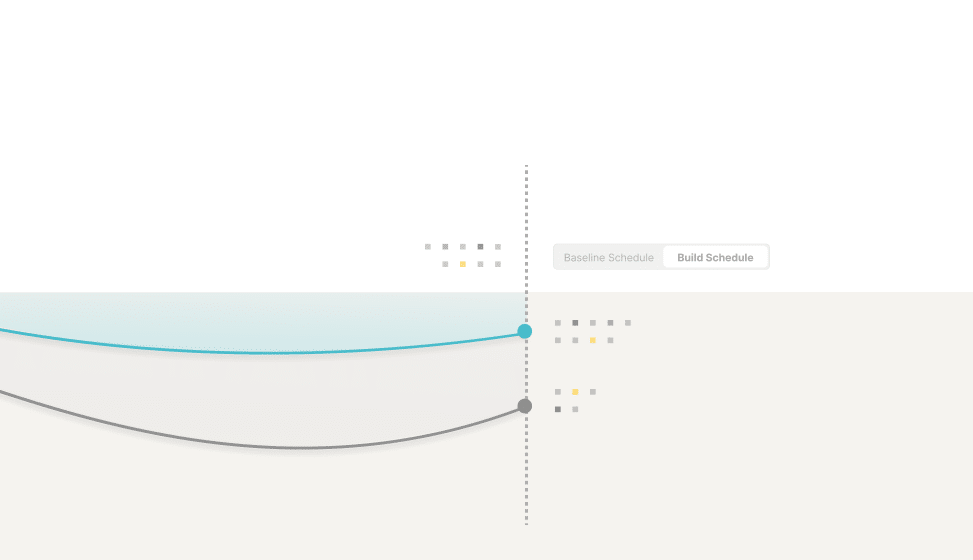Above the Noise Empowering Proactive Solutions In Construction

How do you kick-off your work week on site? You’re probably getting your morning coffee and catching up on emails – just as you're getting settled, someone rushes into your office. It's only 7am on a Monday and you're already dealing with the first crisis. And guess what? The second one isn't far behind. If you're lucky, you may wrap up these two by lunchtime. But were they the most critical issues demanding your attention this morning? Probably not. Yet, most likely, you handled them right away.
Many folks find themselves in these situations. Reactive management is everyone’s fallback strategy in which issues are dealt with only while or after they arise. Without data-backed planning and proper risk assessment tools, there is no plan B in place for how to deal with the crises in the long run. Project leaders working this way are forced to focus on the ones who yell the loudest, sidelining more significant problems.
In construction, where several parties heavily impact one another, this tendency is all-too-common – and it can quickly lead to costly escalations and snowballing mistakes.
Keeping Clear Of Superficial Fixes
In contrast, proactive construction management cuts through such situations. It allows you to assess each trade's progress against milestones. For example, when noticing a slow down, managers can conduct a granular, in-depth pace analysis geared for an early intervention. An analysis that’s not simply about adjusting schedules – one of the most common reactive responses – but rather about measuring and optimizing going forward, steering clear of superficial fixes and patchwork responses. One can review each activity’s progress and pace, comparing it against the critical path and discovering, for instance, that the dryliner has been developing a brutal delay which must be taken care of ASAP.
From Hasty Decisions To Strategic Solutions
Now consider a subcontractor team raising concerns about needing new work areas – another common scenario of reactive project management. The typical response is to quickly identify available spaces and prevent the trade from diverting their workforce to another project. While focused on a prompt answer, this approach overlooks the underlying issues of the space shortage, prioritizing short-term fixes over long-term solutions. Rapid reactions of this kind tend to create a cycle of merely provisional measures – potentially causing even greater delays and more inefficiencies down the road, as the workforce is needlessly shuffled around.
By adopting a proactive stance, one easily anticipates needs and constantly evaluates each and every trade's progress vs. their assigned tasks. When observing, for instance, a trade moving swiftly but leaving behind incomplete work, a proactive manager already knows which existing tasks need to be completed before expanding, preventing a growing backlog and enabling subsequent trades to complete their work effectively.
Solid Numbers To Stay Ahead Of Your Problems
Replacing reactive management with proactive strategies can make or break your project. When you're always putting out fires you feel like you're constantly busy and productive, but it can lead to truly bigger issues down the road. In contrast, proactive management means you’re preventing the fire by staying ahead of problems and continuously setting the project up for sustainable success.
This is where technology can play an important role. Innovative advancements have paved the way towards maximally enabling managers to adopt their most proactive stance. One such strategy is Performance-Driven Construction Management (PDCM).
PDCM centers on setting key metrics and equipping teams with data-driven techniques. It ensures actions are aligned with solid facts, guaranteeing well-informed choices and precise problem resolution. With PDCM, your Monday mornings become a moment of quiet focus, setting your week up for strategic success instead of putting out circumstantial fires. Sipping your favorite coffee brew in peace, you are finally able to shine a light on the most critical problems and performance indicators, all converging to allow you to cut through the noise and prioritize what truly needs attention.
Want to see how Performance-Driven Construction Management (PDCM) can redefine your project management approach? Explore our detailed whitepaper and learn how leading contractors worldwide have leveraged this practice to become the most proactive managers they can be.




